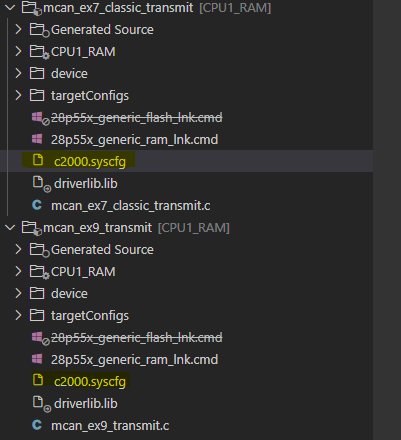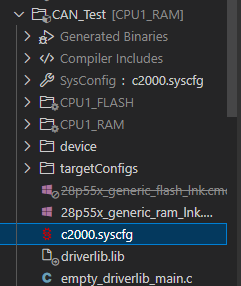Other Parts Discussed in Thread: SYSCONFIG, C2000WARE
Tool/software:
Hello,
Can anyone please send across documentation & examples related to CAN Standard configuration using SYS CONFIG. I use CCS 20.1.1 IDE & sysconfig ver C2000Ware_6_00_00_00
I see only manual configuration examples in listed in CCS 20.1.1.
Somebody Please help!
Regards,
Sharath



